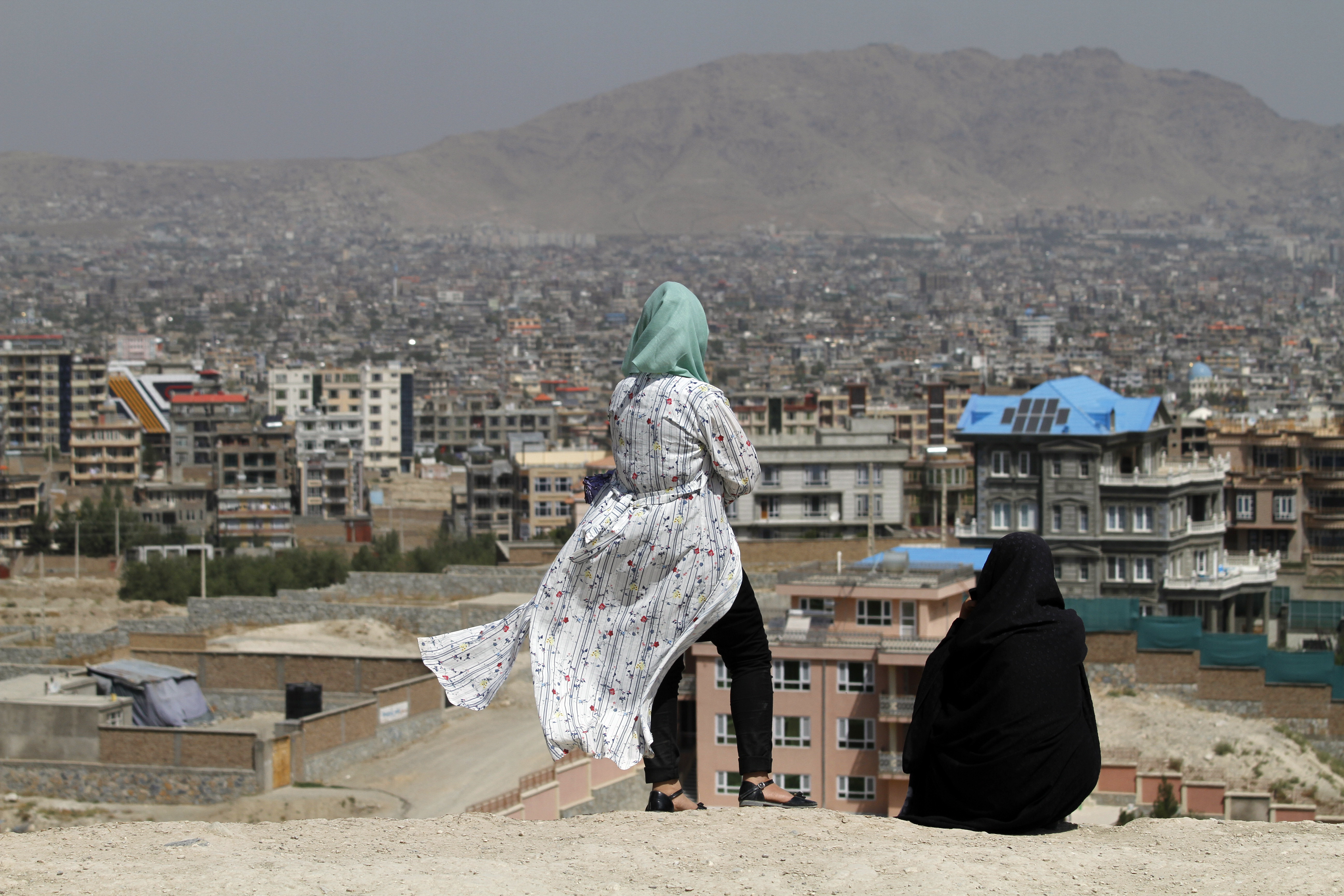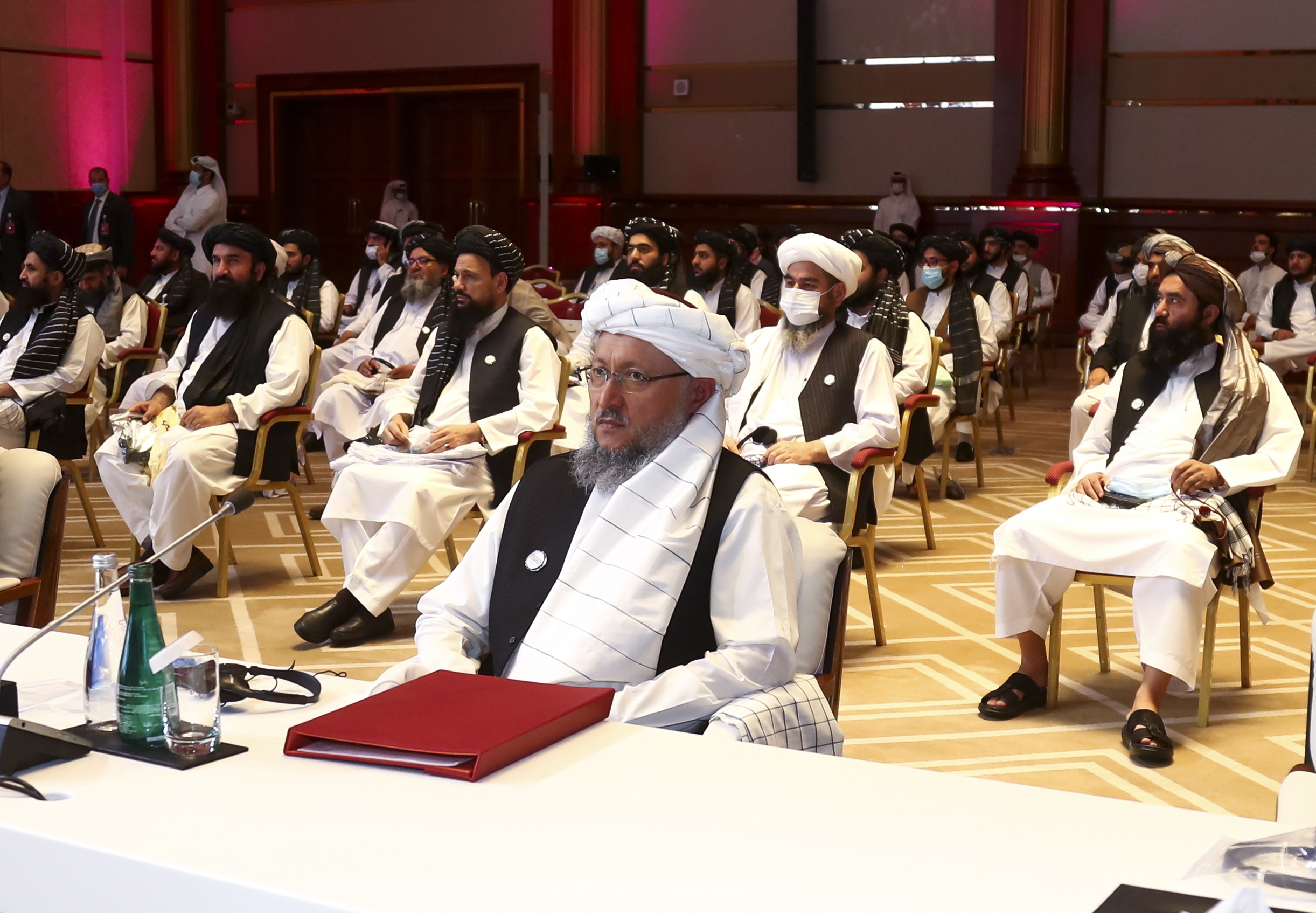The Afghan government has ratcheted up pressure for a truce with the Taliban, reiterating calls for a long-term ceasefire at talks in Qatar.
The two sides are in the early stages of meetings in the capital Doha in an effort to hammer out a deal bringing to a close 19 years of bloodshed in Afghanistan.
A slick opening ceremony on Saturday saw the Afghan government and allies, including the US, call for a ceasefire.
But the Taliban, who have fought a guerrilla campaign against both since they were forced from power in 2001, did not mention a truce as they came to the negotiating table.
Afghan presidential spokesman Sediq Seddiqi tweeted on Monday that the presence of government negotiators at the talks "is aimed at achieving a ceasefire, ending the violence and ensuring lasting peace and stability in the country".
The head of the peace process for the Afghan government, Abdullah Abdullah, had earlier suggested the Taliban could offer a ceasefire in exchange for the release of more of their jailed fighters.
He said the talks should continue in the "spirit of moving towards peace".
"There should first be a significant reduction in violence, then humanitarian ceasefires, and then a nationwide and permanent ceasefire," he said.
Schedules and a code of conduct for the talks were discussed in meetings on Sunday, according to both sides, but talks on substantive issues are yet to get underway.
Delegates warned negotiations, which take place even as fighting continues in Afghanistan, would be arduous and messy.
"We will undoubtedly encounter many challenges in the talks over the coming days, weeks and months," US Secretary of State Mike Pompeo said during a visit to Doha Sunday.
'We are fired up'
Nearly two decades since the US-led invasion that toppled the Taliban, the war still kills dozens of people daily and the country's economy has been shattered, pushing millions into poverty.
The Taliban have long worried that reducing conflict could lessen their leverage.
Officials said six police were killed in a Taliban attack in Kunduz over the weekend, while five officers were slain in Kapisa province.
A roadside mine blast in the capital wounded two civilians, and another explosion in Kabul district resulted in no casualties. Abdullah, chairman of Afghanistan's High Council for National Reconciliation, called the upsurge of violence a "miscalculation".
Abdullah, chairman of Afghanistan's High Council for National Reconciliation, called the upsurge of violence a "miscalculation".

Afghan women look at the skyline of Kabul, Afghanistan. Source: AP
Nader Naderi, an Afghan government negotiator, said "we are fired up and ready to go to end this fight".
'Sooner rather than later'
During a speech at the opening event, Taliban co-founder Mullah Abdul Ghani Baradar repeated the insurgents' message that Afghanistan should be run according to Islamic law, highlighting a likely sticking point.
Mr Baradar and Mr Abdullah both met with Qatar's Emir Sheikh Tamim bin Hamad Al-Thani on Sunday to discuss the process, according to Tamim's office.
A comprehensive peace deal could take years, and will depend on the willingness of both sides to tailor their competing visions for Afghanistan and the extent to which they can agree to share power.
President Ashraf Ghani's government wants to maintain the Western-backed status quo of a constitutional republic that has enshrined many rights, including greater freedoms for women.
Four of the 21 people on the Kabul negotiating team are women.
The Taliban, who stripped women of all basic freedoms while in power from 1996-2001, had no female negotiators.
Ashley Jackson, a researcher at the Overseas Development Institute said she "anticipated internal differences but (the Taliban) are decision-makers, which cannot be said for the Afghan government side".
In a statement, Mr Ghani called for "a lasting and dignified peace" that preserved "the achievements of the past 19 years".
Government negotiator Habiba Sarabi said the start of talks had been "very positive".
Mr Abdullah said the process "could be the start of history made in the coming future, and hopefully sooner rather than later". Experts have suggested the sides might discuss the prospect of an interim or coalition government including all Afghan factions.
Experts have suggested the sides might discuss the prospect of an interim or coalition government including all Afghan factions.

Mullah Abdul Salam Hanafi, a representative of the Afghan Taliban movement, attends the opening session of the peace talks. Source: EPA
But Sultan Barakat, director of the Centre for Conflict and Humanitarian Studies at the Doha Institute, said "it was too early to discuss an interim government".
"There are a number of issues... that need to be addressed before we go into that detail of what kind of government," he told Al Jazeera.
The US-backed negotiations come six months later than planned owing to disagreements over a controversial prisoner swap agreed in February.
Under the terms of that force withdrawal deal struck between the US and the Taliban, 5,000 Taliban prisoners have already been released in exchange for 1,000 government forces.



